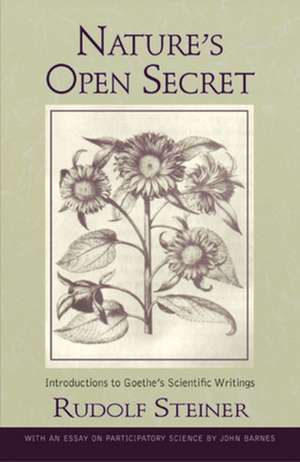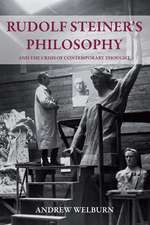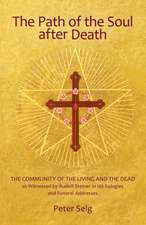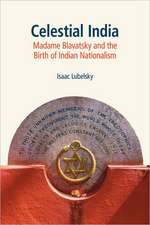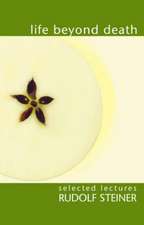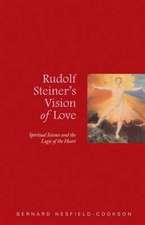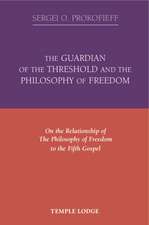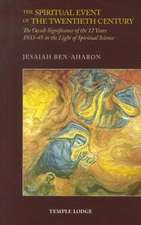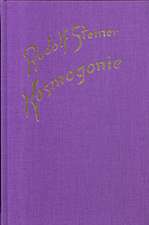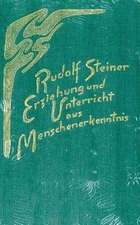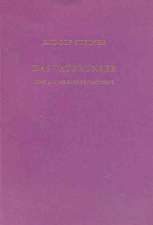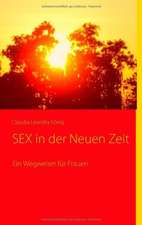Nature's Open Secret
Autor Rudolf Steineren Limba Engleză Paperback – 13 apr 2010
- 1. Introduction by John Barnes
- 2. The Origin of Goethe s Concept of Metamorphosis
- 3. The Origin of Goethe s Thinking on Animal Morphology
- 4. The Nature & Significance of Goethe s Writings on Organic Morphology
- 5. Goethe s Way of Knowing
- 6. Concluding Remarks on Goethe s Morphology
- 7. The Arrangement of Goethe s Scientific Writings
- 8. From Art to Science
- 9. Goethe s Theory of Knowledge
- 10. Knowledge & Action in the Light of Goethe s Ideas
- 11. Goethe s Way of Thinking Compared to Other Views
- 12. Goethe and Mathematics
- 13. Goethe s Fundamental Geological Principle
- 14. Goethe s Meteorological Ideas
- 15. On the Subjectivity of Sensory Perceptions
- 16. Goethe As Thinker & Researcher
- 17. Goethe versus Atomism
- 18. Goethe s Worldview in His "Verses in Prose"
- Essay by John Barnes: Participatory Science As the Basis for a Healing Culture
- Bibliography & Further Reading
Preț: 182.82 lei
Nou
Puncte Express: 274
Preț estimativ în valută:
34.98€ • 36.52$ • 28.95£
34.98€ • 36.52$ • 28.95£
Carte disponibilă
Livrare economică 15-29 martie
Livrare express 01-07 martie pentru 61.24 lei
Preluare comenzi: 021 569.72.76
Specificații
ISBN-13: 9780880107150
ISBN-10: 0880107154
Pagini: 320
Ilustrații: black & white illustrations
Dimensiuni: 152 x 229 x 17 mm
Greutate: 0.43 kg
Editura: Steiner Books
ISBN-10: 0880107154
Pagini: 320
Ilustrații: black & white illustrations
Dimensiuni: 152 x 229 x 17 mm
Greutate: 0.43 kg
Editura: Steiner Books
Notă biografică
Rudolf Steiner (1861-1925) was born in the small village of Kraljevec, Austro-Hungarian Empire (now in Croatia), where he grew up. As a young man, he lived in Weimar and Berlin, where he became a well-published scientific, literary, and philosophical scholar, known especially for his work with Goethe's scientific writings. At the beginning of the twentieth century, he began to develop his early philosophical principles into an approach to systematic research into psychological and spiritual phenomena. Formally beginning his spiritual teaching career under the auspices of the Theosophical Society, Steiner came to use the term Anthroposophy (and spiritual science) for his philosophy, spiritual research, and findings. The influence of Steiner's multifaceted genius has led to innovative and holistic approaches in medicine, various therapies, philosophy, religious renewal, Waldorf education, education for special needs, threefold economics, biodynamic agriculture, Goethean science, architecture, and the arts of drama, speech, and eurythmy. In 1924, Rudolf Steiner founded the General Anthroposophical Society, which today has branches throughout the world. He died in Dornach, Switzerland.
